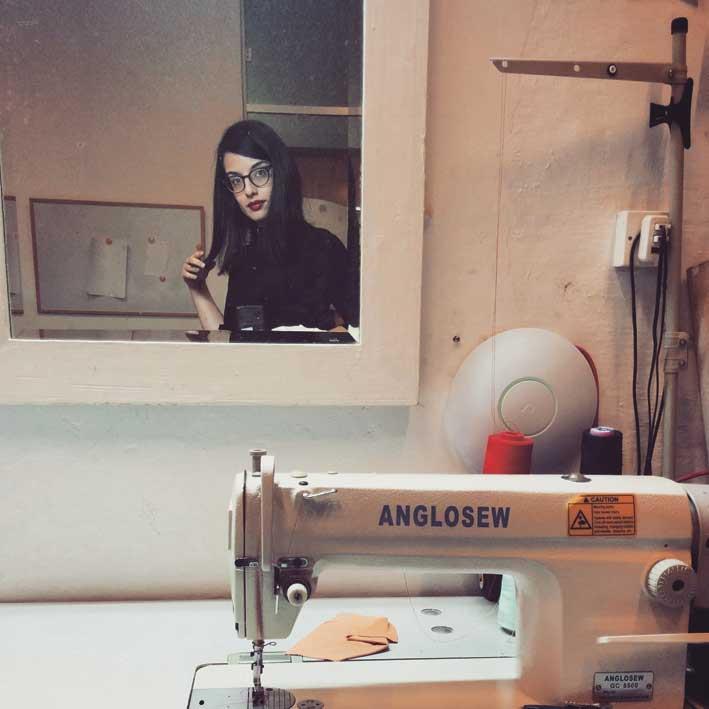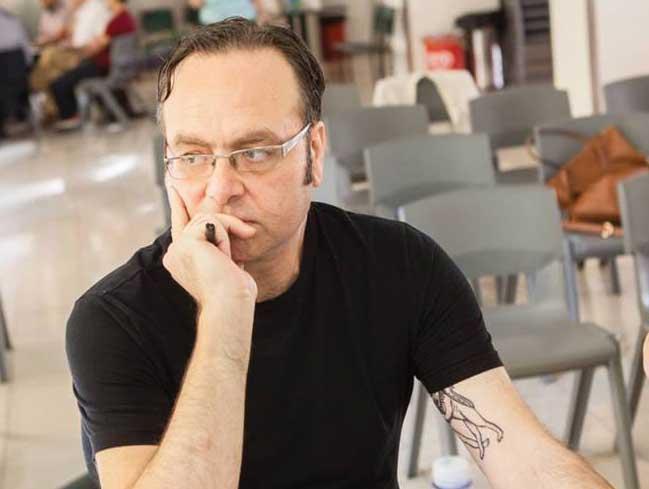For the Manoel Theatre's new and exciting production of The Marriage of Figaro, Artistic Director Kenneth Zammit Tabona has engaged the young and talented director Jack Furness, and Sean Buhagiar - fresh from his Theatre Malta appointment, to manage the production.
Meanwhile, the international cast sees Paul Putnins in the title role and the renowned Paris-based Maltese soprano Claire Debono as Susanna. The rest of the cast includes Christian Bowers as Count Almaviva and Ruth Sammut Casingena as his Countess, as well as Clare Ghigo, Kinga Dobay, Francesca Aquilina, Emilio Marcucci and Richard Roberts. The Malta Philharmonic Orchestra will be conducted by Philip Walsh.
Claire Debono left Malta in 1999 and after studying and performing in the UK, moved to Paris about four years ago. She is there at the moment, so we speak over Skype, with her adorable four-year-old daughter sitting next to her, babbling away in French and at, one point, showing me a drawing she has made of me - a delightful take on my profile.
"This role is really 'me'," Ms Debono says, her voice full of enthusiasm. "I have a very good middle register and this role is like a feast in that part of the voice. Susanna is a smart, scheming, wilful and noble character. Her deceptive plots are motivated by her love for Figaro and the mending of the Countess's broken marriage. I have sung several Barbarinas in the past, but this is my first Susanna. It's about time I played her!"

Costume designer Maria Muscat
Susanna is chambermaid to the Countess and betrothed to Figaro. Her character follows the Commedia dell' Arte tradition, in which servants are cleverer than their aristocratic employers.
"The Count pursues her relentlessly, so she hatches a plot with the Countess to teach him a lesson. Yes it's a feminist opera!" she says with a laugh.
Ms Debono says she thinks that The Marriage of Figaro is perfectly suited to being played against a modern background. "Not all operas work well this way, but this one definitely does. It's very topical - timeless, even. It's all about human nature, intrigue, politics, sex and scandal. In the opera, the Count tries to hide the fact that he is a philanderer. In real life Malta, we have a Cabinet Minister denying an alleged sexcapade in a brothel. The subject of sexual harassment in the workplace remains pertinent to our day and age and that of female empowerment even more so - think about the Women's March against Donald Trump a couple of weeks' ago."
In Ms Debono's opinion, drama and music were never so well-matched as in The Marriage of Figaro. "Imagine - the best librettist, Lorenzo Da Ponte, working with the best composer of the time. It's pure genius. It's bawdy and clever and fun. It's also a fantastic introduction to the world of opera, so I would encourage anyone who has never been to an opera production to come and see this one," she says.
Her obvious passion for her art manages to get through to me; it is as if we are in the same room and by the end of the conversation I'm itching to watch her in action on stage.
On to the opera's creative team, which consists of contemporary artist Pierre Portelli, who is designing the set, theatre veteran Chris Gatt - responsible for the lighting and Maria Muscat of Babettopolis fame in charge of the costumes.
This is Ms Muscat's second foray into opera. "This time, my direction for costumes was to make sure I kept it recognisable with a hint of wit," she says. "It has been a very challenging balancing act. The sourcing and making of costumes, as well as the styling choices, are devoid of the flourishes allowed in period costume. The Count's household itself has proved particularly challenging to re-interpret in a modern age."
She says this production is a decidedly fresh and au courant take on a classic. "It is exciting in its scope and the director's intriguing vision is, of course, reflected in the setting of the piece. It's very character-driven and the easily recognisable is cleverly juxtaposed by several surreal visual elements."

Pierre Portelli (Photo Elisa Von Brockdorff)
Pierre Portelli has worked on some of the most interesting and innovative theatre productions in recent years and has designed sets for numerous opera productions at the Manoel Theatre.
He has been working on The Marriage of Figaro since early May last year - carrying out extensive research, developing the concept that reflects the director's vision, model-building and designing the plans that are eventually passed on for building the set.
"The set is inspired by the classical but articulated through the contemporary idiom," Mr Portelli explains. "The main inspiration is details from classical period furniture, especially chairs and cheval mirrors. The set is surreal at times, with an Alice in Wonderland or Brobdingnag (the land of the giants in Gulliver's Travels) effect with regard to scale."
The opera is, he says, still very much an 'Opera Buffa'. "Apart from this, however, the original gist of Beaumarchais's play - the source material for Mozart, and Da Ponte's Nozze, still has relevance to current issues like class, gender, inequality, female empowerment and politics, to name but a few," he says. "This is opera for the people - it has many layers, it's entertaining, witty, it's Mozart - and you should be part of it. Power to the people!"
The Manoel Theatre will be presenting The Marriage of Figaro on 28 February and 2, 4 and 6 March. Tickets can be purchased from www.teatrumanoel.com.mt, [email protected] or 2124 6389. The opera will be sung in Italian, with English and Maltese subtitles.